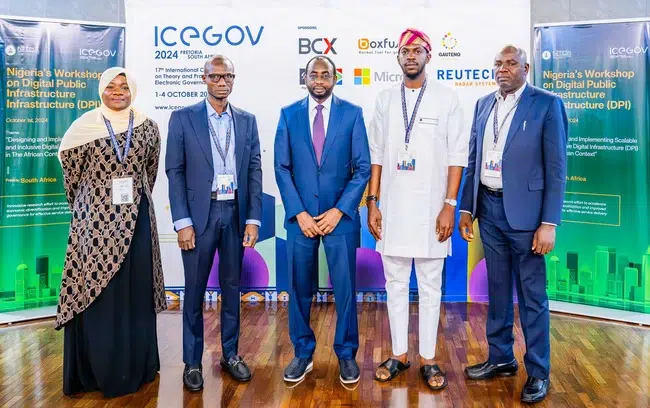The 17th International Conference on the Theory and Practice of E-Government (ICEGOV2024) that produced five Nigerian researchers is winner reflective the competitive nature of the event
Describing the status of the global event in a statement, Director General, National Information Technology Development Agency (NITDA) Mr. Kashifu Inuwa, said that out of 157 submitted papers, only 85 were accepted.
The made a significant impact at the 17th International Conference on the Theory and Practice of E-Government (ICEGOV2024), held in
The Pretoria, South Africa event, organized by the United Nations University and UNESCO, attracted over 336 participants from 49 countries, underscoring the global importance of digital governance.
Representing the Minister of Communications, Innovation, and Digital Economy, Dr. Bosun Tijani, Inuwa stated that the insights gained from the research could catalyse technological innovations crucial for Nigeria’s economic diversification and governance improvement.
According to him, it confirmed NITDA’s commitment to supporting research initiatives, ensuring that Nigeria remains at the forefront of advancements in digital governance.
The showcased research spans various aspects of digital transformation, collectively aiming to enhance e-governance and stimulate economic growth through technological innovation. Below are brief outlines of the pivotal works presented:
Hassana Asuku’s presentation, “Bridging the Broadband Gap,” Asuku addresses the digital divide in rural areas by proposing a comprehensive strategy to improve broadband access. Her multidimensional approach seeks to enhance economic inclusion and civic engagement, aligning with the government’s push for digital growth.
Adeyinka Patrick Adewumi’s research on “Digital Competency in the Public Sector” highlights the challenges posed by low digital skills among civil servants. He proposes a model for targeted training and infrastructure upgrades to accelerate digital transformation.
Dr. Agbali Mohammed’s work on Scalable Digital Public Infrastructure (DPI) tackles institutional barriers to deploying effective DPI in Nigeria, aiming to enhance public-private partnerships and improve regulatory frameworks.
Dr. Tanimu Mukhtar Garba’s research on Tax Compliance for SMEs introduces the Taxpoynt platform, designed to simplify tax processes for small businesses. This advancement is crucial considering the significant role of SMEs in Nigeria’s economy.
Dr. Salihu Dasuki Ibrahim’s work on Citizens’ Freedoms in E-Governance explores how DPI can enhance citizen liberties, addressing obstacles such as inadequate ICT infrastructure and data privacy concerns.
The contributions of these researchers not only position Nigeria as a leading voice in the global conversation on digital governance but also reflect the nation’s commitment to leveraging technology for sustainable economic growth and improved governance.




